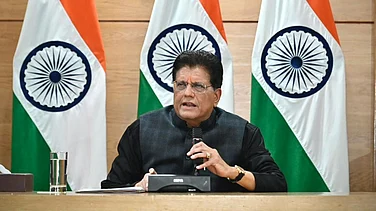NITI Aayog CEO B V R Subrahmanyam on Monday emphasised on the need to focus on transparency with regard to states' finances as greater transparency will help states raise resources from market at competitive rates.
Participating in a seminar organised by the Centre for Social and Economic Progress (CSEP), he also made a case for having a fiscal council like institution to better manage the debt trajectory of the Centre and states.
Transparency is more important than uniformity and states should ensure that everything gets reported in some form or the other because the market values transparency, he said.
Citing an example, he said, five southern states accounted for 93 per cent of off- budget borrowing last year while all the high deficit states like West Bengal, Punjab and Rajasthan have low off-budget borrowing.
"It is all because of market discipline...people are more willing to lend to these five states as compared to West Bengal, Punjab and Rajasthan," he said, adding, there are takers of papers issued by Tamil Nadu or Karnataka but no one for West Bengal or Punjab.
"If you don't have a developed bond market, you (states) go through this government of India, RBI route for raising resources. If you have developed bond markets, and you have transparency, I think market disciplines will operate and as I said they're probably operating in Rajasthan Punjab for investment," he said.
He said that the Centre also needs to further improve transparency with regard to Extra Budgetary Resources (EBR) and bring in discipline for cesses and surcharges.
States are getting increasingly choked for revenue, he said, adding, "post-GST there avenues for raising funds independent of some third party is also not there...it has probably pushed states more to the other side in terms of being cautious in subscribing to a new such arrangement."
"And that's where I see a danger for this PFM (Public Financial Management) law, why it's not likely to get passed, because there is an increasing use of cesses and surcharges to raise revenues. If cess and surcharge are part of the non-divisible pool then states will be wary of ceding more and more of their autonomy in taxation," he said.
He also pointed out that the increasing number of centrally sponsored schemes takes away nearly Rs 4 lakh crore from states.































